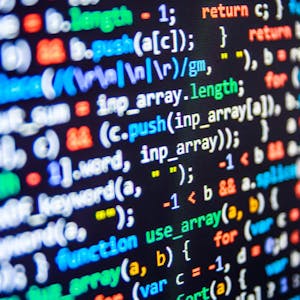Explore the fundamental concepts of algorithmic searching and sorting with the Algorithms for Searching, Sorting, and Indexing course. This comprehensive training program delves into the design and analysis of algorithms, focusing on sorting arrays, priority queues, hash functions, and their applications.
Throughout the course, you will gain insights into the basics of algorithm design and analysis, and learn to implement sorting, selection, and hash functions in heap data structures. The curriculum covers various modules such as Basics of Algorithms Through Searching and Sorting, Heaps and Hashtable Data Structures, Randomization: Quicksort, Quickselect, and Hashtables, and Applications of Hashtables.
Whether you are interested in advancing your career in data science or computer science, this course equips you with essential skills and knowledge to excel in algorithmic design, sorting, and indexing.
Certificate Available ✔
Get Started / More Info
The course modules cover a wide range of topics, including the basics of algorithms, heap and hashtable data structures, randomization techniques, and various applications of hashtables. Each module provides in-depth insights into algorithm design, sorting, and indexing.
Module 1 delves into the basics of algorithms through searching and sorting. Gain insights into time and space complexity, asymptotic notation, binary search, merge sort algorithm, and more. This module provides a strong foundation for understanding algorithmic concepts and techniques.
Module 2 focuses on heap and hashtable data structures, covering topics such as dynamic arrays, heap primitives, priority queues, heapify, and hashtables introduction. Delve into the operations and applications of heap data structures, essential for effective algorithm implementation.
Module 3 explores randomization techniques, including quicksort, quickselect, and hash functions. Gain an understanding of average case analysis, recurrences, partitioning schemes, and the analysis of quicksort algorithm. This module equips you with essential skills for efficient algorithm design and analysis.
Module 4 provides insights into various applications of hashtables, including open address hashing, perfect hashing, cuckoo hashing, bloom filters, count-min sketches, and string matching using hashing. Explore the practical applications of hashtables in different scenarios and enhance your proficiency in algorithmic design and sorting.
Master algorithmic programming techniques in this comprehensive course that offers hands-on experience with nearly 100 coding problems. Apply algorithms to real-world...
Data Structures is an essential course covering common data structures, their implementation in various programming languages, and use cases. Gain hands-on experience...
Operations Research (OR) Optimization Algorithms course provides a comprehensive study of efficient algorithms for solving linear programs, integer programs, and...
This course explores the ethical challenges and societal implications of computing technologies, equipping learners with the skills to identify and address ethical...